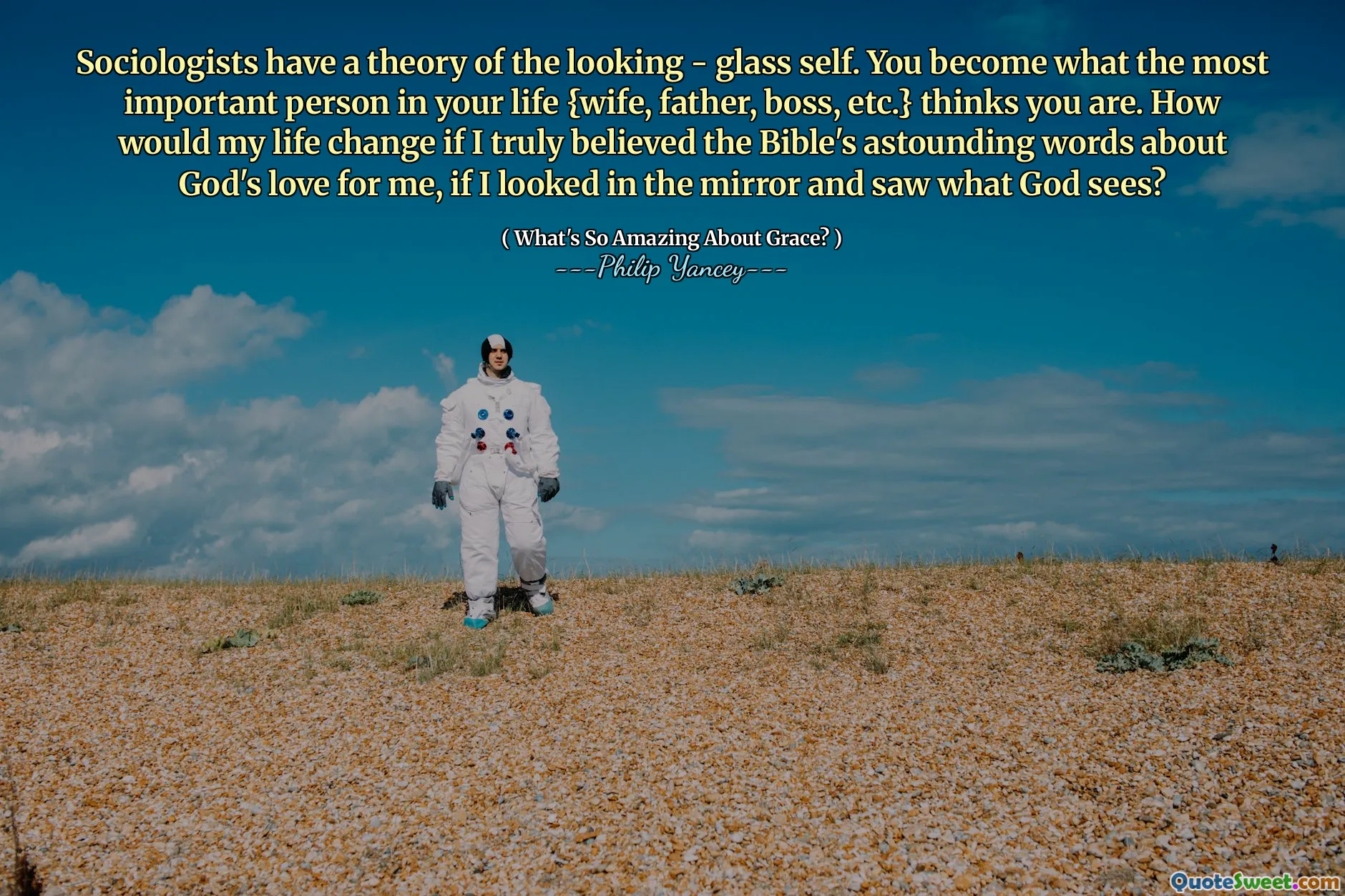
Sociologists have a theory of the looking - glass self. You become what the most important person in your life {wife, father, boss, etc.} thinks you are. How would my life change if I truly believed the Bible's astounding words about God's love for me, if I looked in the mirror and saw what God sees?
This quote draws a profound connection between sociological theory and spiritual reflection, inviting us to reconsider the fundamental ways in which identity is shaped. The looking-glass self theory, articulated by sociologist Charles Cooley, suggests that our self-concept largely depends on how we imagine others perceive us. This process, often unconscious, has significant power over our behavior, self-esteem, and sense of worth. Most people inevitably align with the perceptions of those who matter most in their lives—be it family, employers, or close friends.
What makes the quote deeply compelling is its proposition of replacing these human assessments with a divine viewpoint: the image God holds of us. The suggestion to "look in the mirror and see what God sees" is not only poetic but spiritually liberating. It challenges us to reconsider our worth, largely defined by human judgment, and instead root our self-identity in an unconditional, perfect love described in the Bible. This theological shift can radically transform behaviors and attitudes.
If one truly embraced God's love as described in scripture—loving, forgiving, and unconditionally accepting—the resulting change in life could be monumental. Anxiety born from striving for approval, self-criticism tied to failures, and the constant fear of rejection could lessen significantly. Instead, qualities like grace, peace, and confidence in being inherently valued would take root. This could encourage people to pursue their true potential, make choices from a place of affirmation rather than fear, and navigate relationships with more humility and acceptance.
The reflection also invites a challenge: how often do we permit human opinions to define our self-worth? Contrarily, faith invites a more grounded, unshakeable source of identity. When aligned with God's perception, one's self-image could transcend temporary, conditional affirmations and criticisms that flow through the social mirror. It is a call toward a healthier, spiritually centered self-perception.
Overall, the quote nurtures an awe for divine grace combined with practical insight from sociology. It encourages introspection about whose gaze we let shape our understanding and invites a transformative embrace of a love that knows no bounds. This profound pivot holds conservative power to upgrade how life is perceived and lived at its very core.





